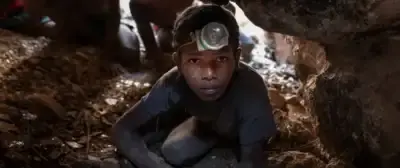Conflict shuts classrooms: Millions of children in Nigeria and West Africa face future without education
By | Education | 15-Sep-2025 17:29:41

News Story
A new United Nations report has laid bare the devastating toll of conflict
on education across West and Central Africa, with nearly 15,000 schools closed as of mid-2025,
leaving millions of children locked out of classrooms. The crisis is most acute
in Nigeria and Cameroon, where violence and displacement have upended the lives
of families and disrupted the futures of an entire generation.
The UN estimates more than 3 million children have had their education
derailed, but experts say the true figure could be far higher. In
Nigeria alone, nearly 500 schools remain
shut, according to Lagos-based social worker and gender specialist Busola Rafiat Ojo-oba, who believes over 5 million children are out of school.
“In a country where poverty is already multidimensional, children being forced out of the classroom only fuels a cycle of unemployment and deprivation,” Ojo-oba told DW. “Teachers cannot continue teaching in these conditions, and families are left with no choice but to keep children at home.”
Generations lost to conflict
The UN report warns that closures are not
temporary setbacks but permanent ruptures. Between June 2024 and June 2025
alone, the number of shuttered schools rose from 14,364 to 14,829, leaving children without lessons — in
many cases for years.
For communities in Nigeria’s northeast, where
Boko Haram insurgency shut down schools at the height of violence, the closures
have become irreversible. “A lot of those schools never reopened, and many of
the children never went back,” said Efe
Johnson, a youth leader in Abuja. “They’ve grown up outside the
education system.”
Experts fear darker consequences: boys being drawn into armed groups, and girls facing early pregnancies and forced marriages, further reducing the chance of returning to school.
Fear eclipses the classroom
In Zamfara State in northwestern Nigeria,
schools in Anka, Bukuyyum, Maru,
Shinkafi, Tsafe and Zurmi remain closed, while others, like Government
Day Secondary School, struggle with dwindling attendance.
“Kidnappings and banditry have created so much fear that parents — especially those with daughters — feel it is safer to keep them at home,” said teacher Umar Rabat. Parents, he added, are prioritizing survival — food, shelter, and safety — over education.
Government response falls short
Authorities have deployed patrols and provided
motorcycles and vehicles to boost security forces, while relocating students
from conflict-prone areas to safer zones. Nigeria has also created mini camps for displaced families, where
makeshift schools offer a semblance of learning.
But advocates warn these are stopgap measures. “They are short-lived,” Johnson said. “Once funding dries up, what happens to those children?”
Lessons from COVID-19
In Ghana, conflict has displaced nearly 5,000 pupils in the Savannah Region,
where teachers have fled communities under attack. Africa Education Watch, a leading think tank, argues
that governments must revive the Education
and Emergency Plan, first used during COVID-19 to deliver remote
learning.
“Conflict is not going away anytime soon,” said executive director Kofi Asare. “We must ensure that when physical classrooms close, virtual learning can step in immediately.”
With insecurity spreading across the region, the crisis is not just about classrooms, but about a generation’s right to a future. Unless urgent, sustained action is taken, millions of children risk growing up in the shadows of conflict — without education, opportunity, or hope.